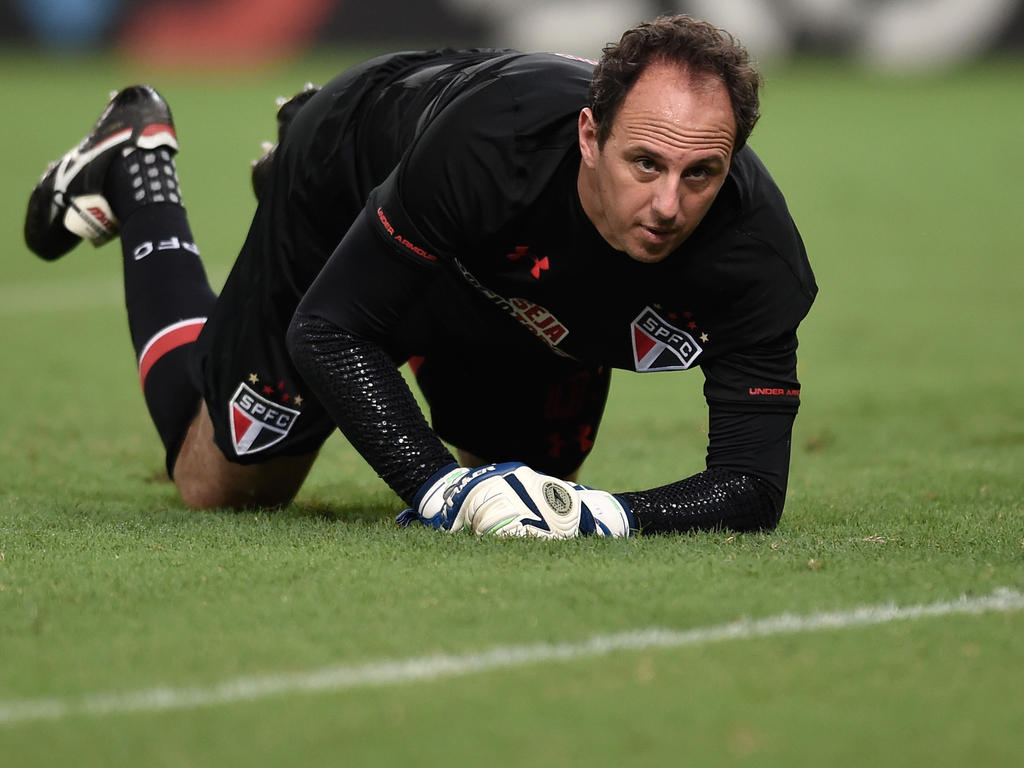Brazil 'keeper Ceni hangs up gloves

Rogerio Ceni, the highest-scoring goalkeeper in history, charmed the world with his golden boots, but it is his magical gloves that will be most missed at the club where he spent his career, Brazil's Sao Paulo.
Ceni, who was Sao Paulo's go-to man for free kicks and penalties, scored 131 goals in his 25-year professional career -- far more than any other keeper.
The 42-year-old Brazilian staved off retirement as long as he could, but finally said goodbye to football Sunday after a match in which he was unable to play due to injury.
He will return to his beloved stomping grounds at Morumbi Stadium on Friday for a final farewell, an exhibition match featuring a roster of Sao Paulo's retired greats.
Then he will hang up his gloves, and his scoring boots, for good.
But both his goals and his saves will live on in YouTube anthology videos, and in the hearts of Sao Paulo fans.
Ceni arrived at Sao Paulo in 1990 as a skinny 17-year-old freshly recruited from a lowly club in the central state of Mato Grosso.
He has played 1,237 matches since then, setting a world record for appearances for a single team.
He captained the club for 16 years, winning 26 titles -- including a FIFA Club World Cup, two Libertadores Cups and three Brazilian championships.
His goal tally -- 69 penalties, 61 free kicks and one ordinary score -- make him the 10th highest-scoring player in Sao Paulo history.
But while he was famous for the oddity of his offensive prowess, he was first and foremost a technically "exceptional" goalkeeper, said fellow Sao Paulo legend Rai, one of the young Ceni's role models.
"He has the best footwork I've ever seen," Rai told AFP.
"He also has a very strong personality that made him an idol to the fans."
Known for his decisive style of hammering home free kicks, Ceni was equally unwavering in his parting message to his teammates before Sunday's match.
"Killing time isn't murder, it's suicide," he told them.
That could have been a summary of his career, one marked by rare talent, obsessive perfectionism and a knack for seizing opportunity as forcefully as an incoming ball.
He started his Sao Paulo career watching his predecessor and inspiration Zetti help a "golden generation" that included Cafu, Rai and Ronaldao to a string of national and international titles.
The promising young back-up would only get his first-team debut in 1993 in a friendly in Spain.
But his appetite for success was already stoked.
"Our victories marked his early career. From a very early age he was part of a winning team and he knew how to take advantage of that," said Rai, the captain who hoisted Sao Paulo's Intercontinental Cup in 1992.
Twelve years later, Ceni would lead the club to its third Libertadores Cup, Latin America's top club football tournament. They followed that up by winning the 2005 Club World Cup in Japan, defeating Liverpool in the final.
Ceni was named the player of the tournament, putting a capstone on the best year of his career. He scored 21 goals that season.
Despite his glittering club career, Ceni had fewer than 20 matches for the Brazilian national side.
He was in the World Cup squad in 2002, but never left the bench.
Like the aging rock stars he loves, he flirted with retirement from the time he turned 40, but always found a reason to stay.
His dream of one last Libertadores title was dashed in May, when Cruzeiro knocked Sao Paulo out on penalties. Ceni stopped one kick and scored another, but it wasn't enough.
His contract was originally set to expire in July, but he extended it to the end of the year, perhaps to wring the sting of defeat out of his unaccustomed gloves.
Before hanging them up for good, he will take to the pitch one last time for Friday's farewell match, when 45,000 fans will fill the stadium with their chant of the past 25 years: "Every team has a goalkeeper, but only we have Rogerio."






